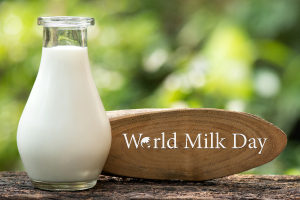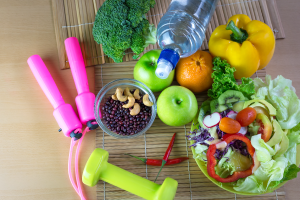

Have you ever wondered how to maintain bone strength without the drama of meat? So fasten your seatbelts, because we’re going to be exploring the mysteries of calcium rich vegetarian foods. Vegetarian sources of calcium can be such bone buddies—who knew? Please stay with us as we discuss the benefits of calcium for your bones and how to get plenty of calcium foods for vegetarians without putting any meat on your plate!
Benefits of Calcium-Rich Foods
Let’s unwrap the goodness of calcium-rich foods, shall we? First off, these foods are like the architects of your bones and teeth. They help build and maintain a sturdy structure, making sure you’ve got a strong foundation to carry you through life.
But calcium isn’t just about bones – it’s a multitasker! Picture this: your muscles are like a team of little workers, and calcium is the supervisor, making sure they stay coordinated and do their job without any hiccups. So, eating calcium-rich foods is like giving a thumbs up to this teamwork. Now, here’s a fascinating twist – calcium also moonlights as a peacekeeper in your blood. When there’s a tiny cut or scrape, calcium steps in to help the blood clot and stop the bleeding. It’s like having a built-in repair system for those little bumps and bruises.
So, loading up on calcium-rich foods isn’t just a one-trick pony for your bones; it’s a whole-body celebration. Keep those calcium-packed goodies on your plate, and you’re not just eating—you’re investing in a body that’s ready to take on the world!
How Much Calcium You Need?
The age-related recommended daily intake of calcium changes. As a general rule of thumb:
- Infants aged 1-3: 700 mg daily
- Children aged 4-8: 1,000 mg daily.
- Adolescents and Children aged 9–18: 1,300 mg daily
- Adults aged 19–50: 1,000 mg daily.
- Males aged 51 to 70: 1,000 mg daily
- Women aged 51 to 70: 1,200 mg daily
- Adults aged 71 and above: 1,200 mg daily
To get individualised calcium recommendations, it’s important to speak with a healthcare professional, as pregnant and nursing women may require different amounts. Remember that these are only recommendations and that each person’s needs may differ depending on their lifestyle and health.
Top Calcium-Rich Vegetarian Foods
Now for the exciting part: the A-listers of the best source of calcium! Not only are these meals delicious, but they are also small powerhouses for your bones.
Leafy Green Veggies
Here, broccoli, kale, and spinach are the superstars. They act as the green keepers of your bone health since they are loaded with calcium.
Seeds and Nuts
Sesame seeds, chia seeds, and almonds are like little but formidable competitors. They pack a calcium punch and add crunchy deliciousness to your dish.
Tempeh and Tofu
These miracle plant-based proteins are likewise high in calcium. They’re like building blocks for your body, delivering both calcium and protein in a tasty package.
Fortified Plant Milk
Choose from oat, soy, or almond milk—all of which have been calcium-fortified. They make sure you don’t miss out on this important mineral; they’re like the hip replacements for conventional dairy.
Figs and Oranges
Whoa, whoa! These fruits provide a delightful element to the game of calcium. They demonstrate that calcium may also be delightfully sweet, much like its fruity friends.
Remember, it’s not just a single hero; it’s the whole team working together. You can create a calcium-rich meal that will keep your bones happy by mixing and matching these items!
Conclusion
The benefits go beyond just having healthy bones, and good vegetarian sources support the idea that eating a variety of calcium rich vegetarian foods will help keep your bones happy. It’s simple math: The secret is to eat a calcium-rich, well-balanced diet that suits your age and lifestyle. If your daily intake of calcium from food is insufficient, you may alternatively choose to take calcium tablets.




